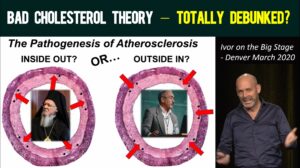I like data where dramatic effects are present, mainly because so much confounding exists in many trials, relative risk ratios of 1.2 or so are not really dependable – someone sneezes when they are designing or analysing and poof! Anyway, I’ve recently come across an interesting analysis on our old friend Omega 3. I for one am happy that dietary w6/w3 ratio is a major issue in the world today, but this study focusses on a high-specificity metric, the Omega 3 Index.
(ref: Harris WS and von Schacky C. The Omega-3 Index: A New Risk Factor for Death from CHD? Preventive Medicine 39:212-220, 2004. PMID: 15208005)
Firstly, let’s look at what the Omega 3 Index is: – “The content of EPA+DHA in the Red Blood Cell Membrane, expressed as a % of total Fatty Acids.” Now, let’s look at how it responds in vivo to various levels of supplementation over several months:

As can be seen, a nice reassuring dose-response relationship – good so far. Now the interesting piece:- the authors took the data from a series of studies, and compared the quartiles of Omega 3 Index against Relative Risk (RR) of Sudden Cardiac Death (SCD). They also compared quartiles of the more traditional risk factors as will be seen. (It’s important to note that SCD is the largest natural cause of death in the US, and makes up half of all CHD deaths). Anyway, let’s see what they got, shall we?:

Striking, eh? The highest quartile for a given parameter is normalised to 1.0 (or lowest for HDL and Omega 3 Index). So on the right hand side we see the Omega 3 Index romping home, with the highest quartile lining up with a 90% lower risk level for SCD. Interestingly, CRP is pretty solid too, with a nice inverse relationship seen. The traditional risk markers fall by the wayside here, but TC/HDL just about gets in there (yes, TC/HDL is indeed my favourite from the lipid panel, if you don’t have access to NMR and ApoB/ApoA!).
Interestingly, for CHD generally I’d expect the lipid markers to have more of a showing, but SCD is good to look at in its own right here, and differences in associative strength for the Omega 3 vs Lipid markers is a longer conversation.
Sadly yet again, I think many trials addressing Omega 3 have various weaknesses, so confounding abounds. I like these guys though – they make a good case, and I’m far from being a fish oil nut in fairness. But if you meet me in the future, and I smell vaguely of fish, you may infer the reason…..!







